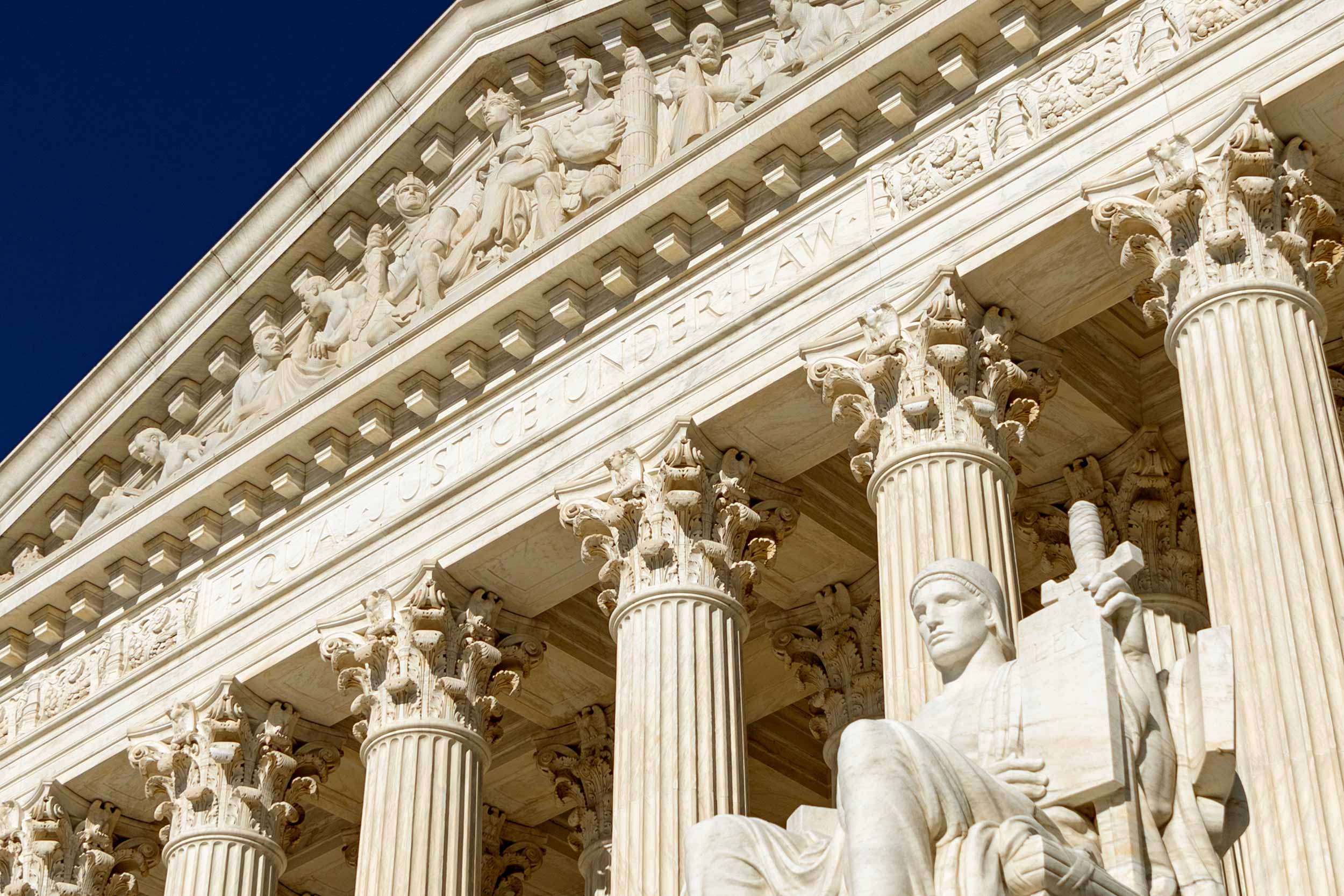The U.S. Supreme Court has agreed to hear three cases with clients represented by clinics at the University of Virginia School of Law.
Two of the cases come from the Supreme Court Litigation Clinic. In Ames v. Ohio Department of Social Services, a former state employee claims they faced discrimination based on their sexual orientation. The other case, Cunningham v. Cornell University, concerns retirement plans and fiduciary claims. The third case, Perttu v. Richards, comes from UVA Law’s Appellate Litigation Clinic and asks if prisoners have a right to a jury trial when it comes to exhausting their administrative remedies.
Sexual Orientation Discrimination Claim
In the Ames case, Marlean Ames alleged the Ohio Department of Youth Services discriminated against her on the basis of sexual orientation and sex under Title VII of the Civil Rights Act of 1964. Ames, a heterosexual woman who was supervised by a gay woman, was denied a promotion and later demoted. A gay woman filled the promoted position, and a gay man replaced Ames in her former role. Both the District Court and U.S. Court of Appeals for the Sixth Circuit dismissed her claim before it went to trial.
The case could help clarify how to handle discrimination claims from plaintiffs who are not a member of a minority group, addressing conflicting opinions among different courts.

UVA professor Xiao Wang, reached out to one of the plaintiffs to offer the clinic’s assistance. (Photo by Northwestern University Law School)
Attorney Edward Gilbert represented Ames before the trial court and before the Sixth Circuit and is co-counsel as the case moves to the Supreme Court. UVA professor Xiao Wang, who directs the Supreme Court Litigation Clinic, reached out to Gilbert to offer the clinic’s assistance following the Sixth Circuit decision.
Wang said the case opens the door for the justices to embrace a uniform standard for Title VII lawsuits.
“We think that whatever the test is for discrimination, it should apply equally across groups and across individuals,” he said.
Retirement Plan Fiduciary Claims
In the Cunningham case, current and former workers sued Cornell University and its appointed fiduciaries, alleging violations of the Employee Retirement Income Security Act. Under the act, fiduciaries can’t engage in certain “prohibited transactions,” including any direct or indirect exchange of goods, services or facilities between the retirement plan and someone with a vested interest in that plan. Although the workers pointed to such transactions in their complaint, the U.S. Court of Appeals for the Second Circuit rejected their class action, ruling their allegations were not strong enough to proceed. The Eighth and Ninth Circuits have held differently in other cases, creating another split among the courts.
The employees’ co-counsel at the law firm Schlicter Bogard said the Cunningham case is an important matter for retirement plans nationwide and represents one of many cases the firm has brought on behalf of workers. They said the firm’s work in the Employee Retirement Income Security Act area has had a significant impact in reducing the fees employees and retirees pay.
Prisoner’s Rights

Scott Ballenger is director of the Law School's Appellate Litigation Clinic. Two of his students successfully argued the Seventh Amendment requires a jury trial when there are disputed facts about whether a prisoner has followed the required steps for exhausting prison remedies. (Photo by Julia Davis, UVA Law)
In the Perttu case, prisoner Kyle Brandon Richards appealed a District Court’s decision to dismiss his civil rights lawsuit. The court claimed he had not completed the required steps in the administrative process as outlined in the Prison Litigation Reform Act. Professor Scott Ballenger, who directs the Appellate Litigation Clinic, explained “there are incredibly short filing deadlines for filing a grievance in prison and then multiple levels of appeal, also with very short filing deadlines,” and that “if you don’t do everything absolutely right, you lose your prison grievance claim, but you also lose your claim in court.”
Richards maintains prison staff retaliated against him because of his claims of abuse by tearing up his prison grievance forms. But the District Court held a hearing – without a jury – and found the officers more credible.










